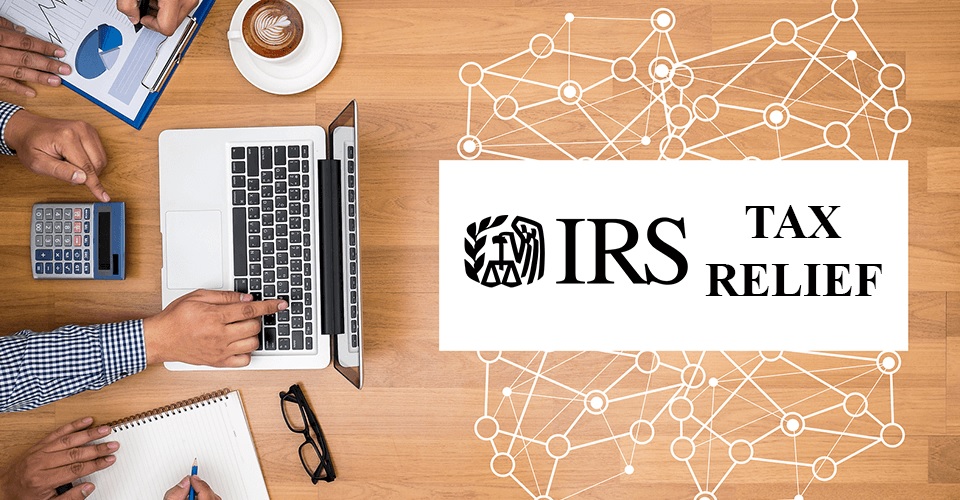IRS TAX Debt Relief program / Loan. The IRS offers several tax debt relief programs and options for taxpayers who are unable to pay their taxes in full. Here are some common IRS tax debt relief programs:
Installment Agreement
Installment Agreement: This program allows taxpayers to pay off their tax debt over time through monthly installments. Depending on the amount owed and the taxpayer’s financial situation, the IRS may offer a streamlined installment agreement or a more formal agreement with detailed financial information.
Offer in Compromise (OIC)
Offer in Compromise (OIC): An Offer in Compromise is a settlement option that allows taxpayers to settle their tax debt for less than the full amount owed. To qualify for an OIC, taxpayers must demonstrate that they are unable to pay their tax debt in full and that the proposed settlement amount reflects their ability to pay.

Currently Not Collectible (CNC) Status: If a taxpayer is experiencing financial hardship and cannot afford to pay their tax debt, the IRS may place them in Currently Not Collectible status. This temporarily suspends collection activities, although interest and penalties may continue to accrue.
Penalty Abatement
Penalty Abatement: In some cases, taxpayers may qualify for penalty abatement, which reduces or eliminates penalties assessed for late payment, late filing, or other infractions. Penalty abatement is typically granted if the taxpayer can demonstrate reasonable cause for the failure to comply with tax obligations.
Partial Payment Installment Agreement (PPIA)
Partial Payment Installment Agreement (PPIA): Similar to a regular installment agreement, a Partial Payment Installment Agreement allows taxpayers to pay off their tax debt over time. However, the monthly payments are lower because they are based on the taxpayer’s ability to pay, considering their income, expenses, and assets.
Taxpayer Advocate Service
Taxpayer Advocate Service: The Taxpayer Advocate Service (TAS) is an independent organization within the IRS that helps taxpayers resolve issues and navigate the tax system. They can provide assistance to taxpayers experiencing financial hardship or dealing with significant tax problems.
It’s important to note that each taxpayer’s situation is unique, and the eligibility requirements and terms of these programs may vary. Additionally, taxpayers should be cautious of companies or individuals promising instant tax relief or settlement, as some may be scams or fraudulent schemes.
For personalized advice and assistance with IRS tax debt relief options, taxpayers are encouraged to contact the IRS directly or consult with a qualified tax professional, such as a certified public accountant (CPA) or tax attorney. These professionals can assess the taxpayer’s situation, explain their options, and help them navigate the process of resolving their tax debt.
Innocent Spouse Relief:
Innocent Spouse Relief: This relief program is available to taxpayers who filed joint tax returns with their spouse or former spouse and are now facing tax debt due to errors or fraudulent activity by their spouse. Innocent Spouse Relief may provide relief from joint and several liability for the unpaid tax, penalties, and interest.
Statute of Limitations
Statute of Limitations: The IRS has a statute of limitations for collecting tax debts, typically ten years from the date of assessment. If the statute of limitations expires before the IRS collects the tax debt, the taxpayer is no longer legally obligated to pay it.
Bankruptcy: In some cases, tax debts may be dischargeable in bankruptcy proceedings. However, certain criteria must be met, and not all tax debts are eligible for discharge. Bankruptcy should be considered carefully, as it can have significant long-term financial implications.
Appeals Process
Appeals Process: Taxpayers have the right to appeal IRS decisions regarding tax debt, such as denial of an installment agreement or offer in compromise. The IRS Office of Appeals provides an impartial forum for resolving disputes and reaching settlements.
Tax Lien Release or Withdrawal:
Tax Lien Release or Withdrawal: If the IRS has placed a tax lien on a taxpayer’s property due to unpaid tax debt, the taxpayer may be able to request a release or withdrawal of the lien. This can help clear the way for refinancing, selling property, or obtaining loans.
Tax Amnesty Programs
Tax Amnesty Programs: Some states offer tax amnesty programs that allow taxpayers to settle outstanding tax debts with reduced penalties and interest. These programs are typically offered for a limited time and may have specific eligibility criteria.
It’s essential for taxpayers facing tax debt to explore all available options and choose the one that best fits their financial situation and long-term goals. Seeking professional advice from a tax attorney, CPA, or enrolled agent can provide valuable guidance and assistance throughout the debt relief process.


